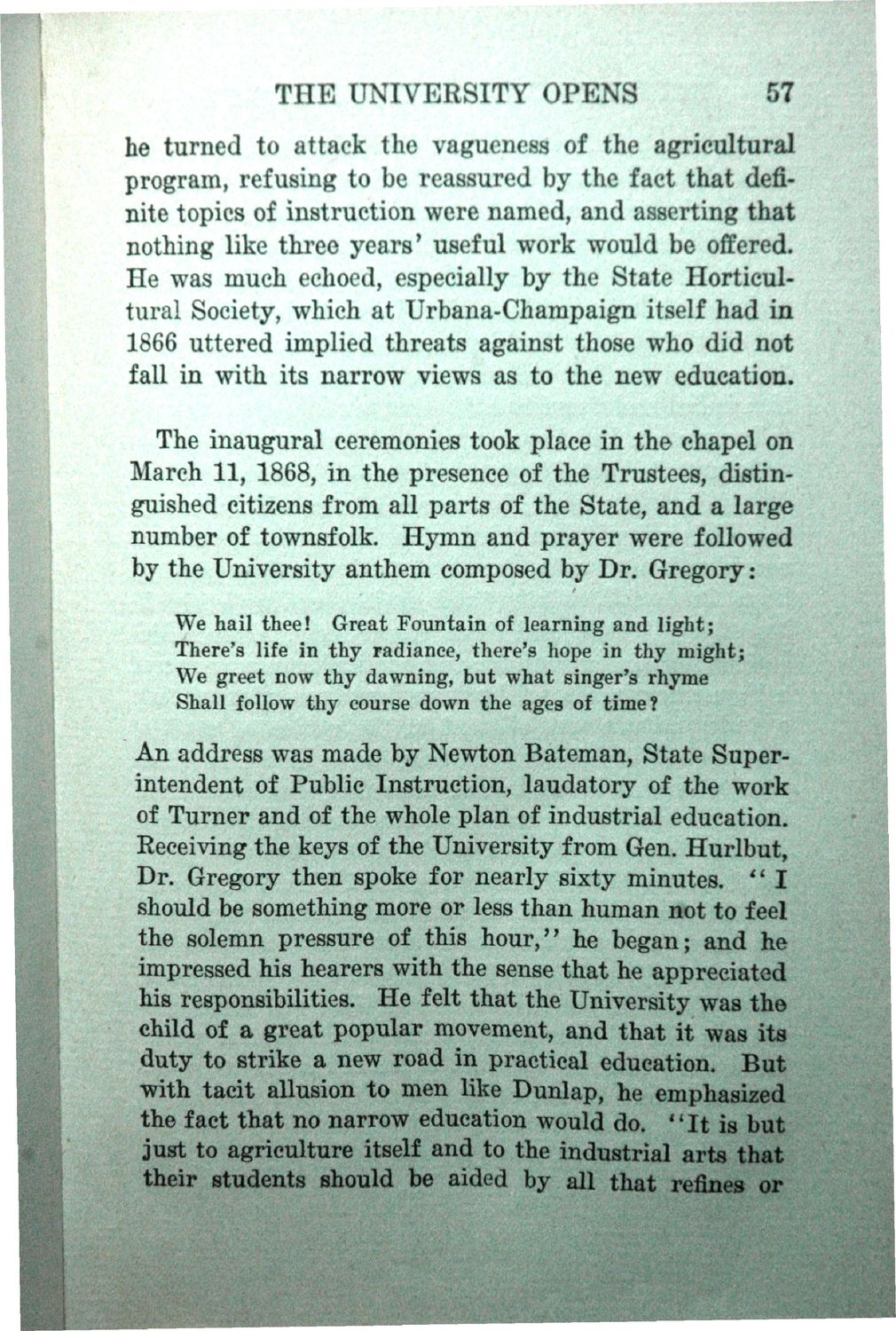| |
| |
Caption: Book - History of the University (Nevins)
This is a reduced-resolution page image for fast online browsing.

EXTRACTED TEXT FROM PAGE:
THE UNIVERSITY OPENS 57 he turned to attack the vagueness of the agricultural program, refusing to be reassured by the fact that definite topics of instruction were named, and asserting that nothing like three years* useful work would be offered. He was much echoed, especially by the State Horticultural Society, which at Urbana-Champaign itself had in 1866 uttered implied threats against those who did not fall in with its narrow views as to the new education. The inaugural ceremonies took place in the chapel on March 11, 1868, in the presence of the Trustees, distinguished citizens from all parts of the State, and a large number of townsfolk. Hymn and prayer were followed by the University anthem composed by Dr. Gregory: We hail thee! Great Fountain of learning and light; There's life in thy radiance, there's hope in thy might; We greet now thy dawning, but what singer's rhyme Shall follow thy course down the ages of time? An address was made by Newton Bateman, State Superintendent of Public Instruction, laudatory of the work of Turner and of the whole plan of industrial education. Receiving the keys of the University from Gen. Hurlbut, Dr. Gregory then spoke for nearly sixty minutes, p I should be something more or less than human not to feel the solemn pressure of this hour," he began; and he impressed his hearers with the sense that he appreciated his responsibilities. He felt that the University was the child of a great popular movement, and that it was its duty to strike a new road in practical education. But with tacit allusion to men like Dunlap, he emphasized the fact that no narrow education would do. *|Bft isjjmt just to agriculture itself and to the industrialists Aat
| |